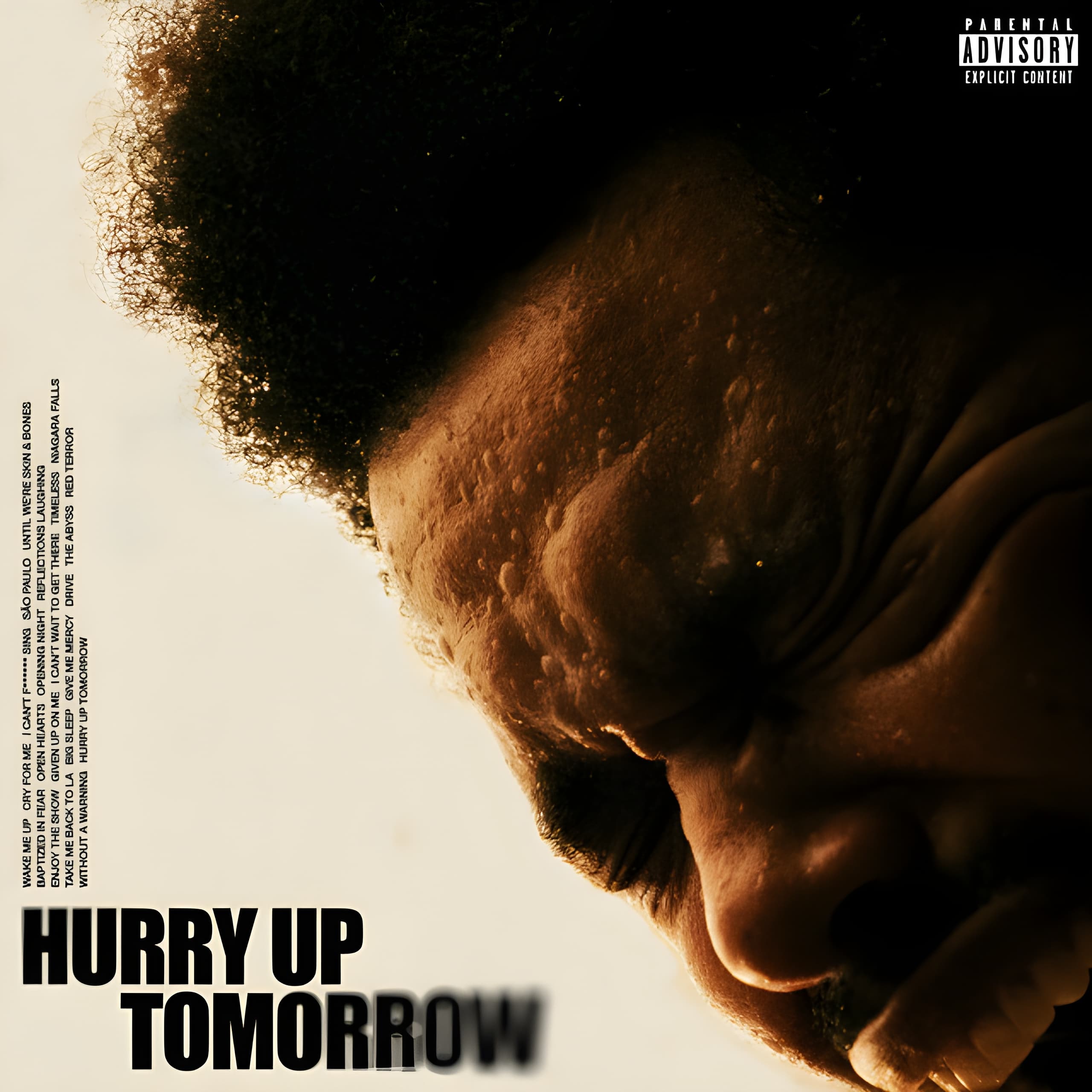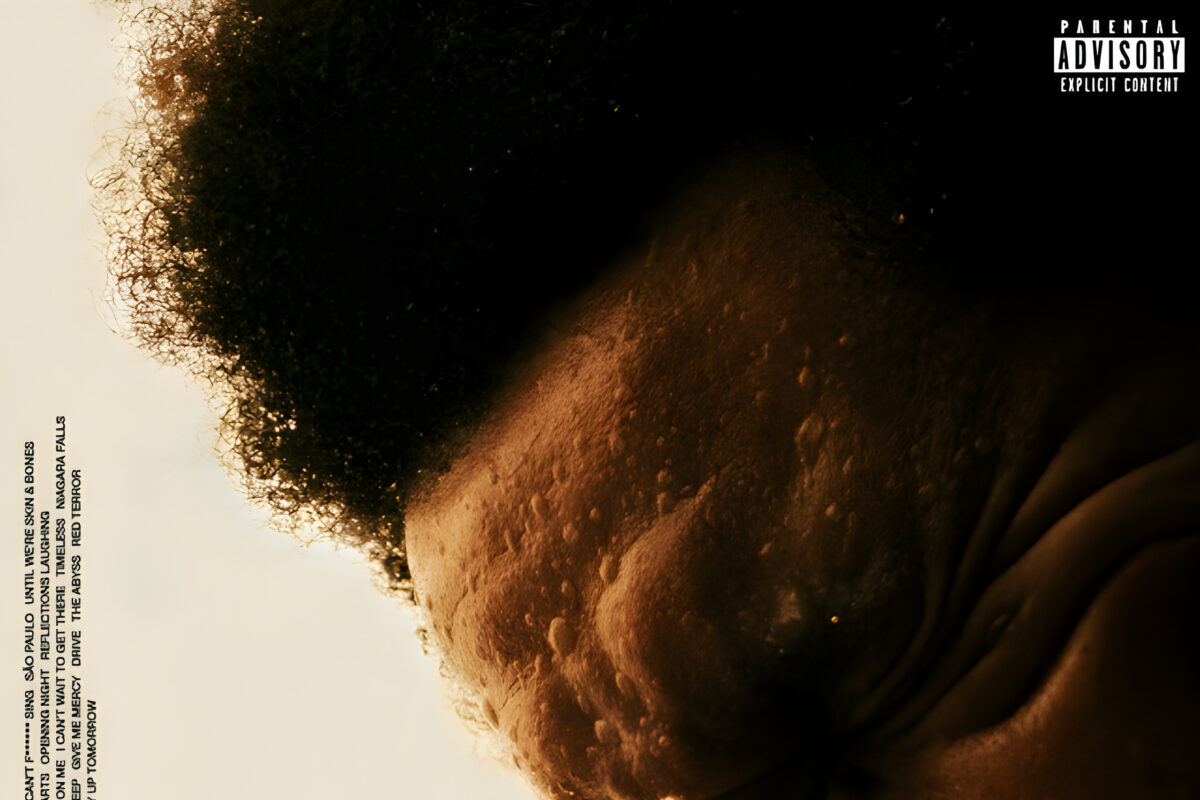Released: 2025
“Reflections Laughing” is a haunting collaboration that explores themes of vulnerability, success, and the dark side of fame. The Weeknd, along with Travis Scott and Florence + The Machine, crafts a narrative that questions the cost of greatness, emphasizing the emotional turmoil and sacrifices inherent in a high-profile lifestyle. The song presents a blend of reflection, confrontation, and an underlying plea for support in the face of inevitable challenges.
The opening lines of the song introduce a metaphor of drowning as a symbol for overwhelming emotional distress. The Weeknd sets the tone with “Don’t you let me down if you let me drown / I’ll die in your arms again, I’ll die in your arms.” This lyric encapsulates the feeling of dependency on a partner or loved one to provide solace and support during moments of vulnerability. It signifies a willingness to embrace their arms as a final sanctuary even in times of peril, merging themes of love and despair.
Continuing with the hook, “I won’t make a sound, blood on the ground / When they take my crown, if they take my crown,” The Weeknd presents an imagery-laden commentary on silence and loss. The ‘blood on the ground’ indicates potential failure or harm, while the crown represents status and recognition. There’s a tacit acknowledgment that such accolades are fragile and easily taken away, drawing attention to the precarious nature of fame.

The chorus features reflective musings, where the protagonist gazes into mirrors, only to see smiling reflections that perhaps belittle his struggle. The lyric, “Reflections looking back at me, they’re smiling, they’re smiling / I’m trapped inside a gilded cage,” conveys an unsettling duality: the perceived glamour of his life juxtaposed with the entrapment it causes. The gilded cage symbolizes opulence that conceals restriction, with the ‘golden blade’ indicating readiness to defend oneself, though sharpened for someone else’s satisfaction.
Florence Welch’s contribution echoes a chilling realization, as she croons about a coldness that seems unchanging. The seasonal metaphor suggests a persistent, possibly damaging influence. It reflects a lingering tension, both externally imposed and internally nurtured, between sustaining an image and succumbing to pressures. The repetition of “Don’t you let me down” serves as a persistent plea to prevent isolation in the face of this constant strain.
The subsequent verse shifts to a dialogue or inner monologue that seems to reflect Travis Scott’s perspective, presenting concerns about reverting to past destructive habits. “I know you’re up / You think I don’t know you’re staying up all night” speaks to the alienation and unhealthy coping mechanisms often associated with touring life. There’s an implication that the demanding nature of performance can reignite past struggles, calling for vigilance against slipping back into damaging behaviors.
Further, as the dialogue unfolds, we see a recognition of how fame exacerbates vulnerability. Scott narrates from a point of caution, where industry pressures could dismantle one’s personal achievements: “I’m just worried, you worked so hard to be better / And now you’re back, drowning in that shit.” The narrative underscores a battle between maintaining progress and the seductive call of regression, while simultaneously showcasing support and care amidst fear of a setback.
The next section provides a glimpse into the intoxicating, sometimes misleading lifestyle of success. Scott’s depiction of lavish living, coupled with reminders of human fallibility—”Losin’ time when you pace, what we can do if you’d waste”—implies an introspective assessment of the ephemeral nature of material success and relationships. The motif of pacing symbolizes impatience or anxiety, underscoring an awareness of the precarious balance between life and time.
As Scott’s narrative intertwines with expressions of partying and superficial relationships, “Flashes from the pics in my sections while I’m fucked up” offers a raw portrayal of how fame can amplify isolation and emptiness despite its glittering facade. The external world might capture these moments as desirable, yet internally, the narrative reveals a contrast: the celebration of achievement masks an ongoing internal struggle.
The song closes by looping back to the initial sentiments—dependence and an almost silent, tragic acceptance of what could happen should everything fall apart. The Weeknd reiterates this acceptance of fate, intertwined with resignation: “What does that shit feel like anyway?” This question seems rhetorical, hinting at an inescapable cycle that defines their experience of success. Overall, “Reflections Laughing” portrays the highs and lows of celebrity life, a relentless cycle that the artists navigate with both vulnerability and strength.








